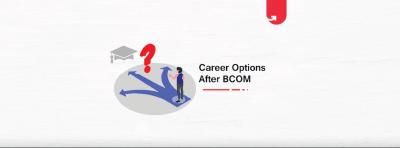For working professionals
For fresh graduates
- Study abroad
More
- Executive Doctor of Business Administration from SSBM
- Doctorate in Business Administration by Edgewood College
- Doctorate of Business Administration (DBA) from ESGCI, Paris
- Doctor of Business Administration From Golden Gate University
- Doctor of Business Administration from Rushford Business School, Switzerland
- Post Graduate Certificate in Data Science & AI (Executive)
- Gen AI Foundations Certificate Program from Microsoft
- Gen AI Mastery Certificate for Data Analysis
- Gen AI Mastery Certificate for Software Development
- Gen AI Mastery Certificate for Managerial Excellence
- Gen AI Mastery Certificate for Content Creation
- Post Graduate Certificate in Product Management from Duke CE
- Human Resource Analytics Course from IIM-K
- Directorship & Board Advisory Certification
- Gen AI Foundations Certificate Program from Microsoft
- CSM® Certification Training
- CSPO® Certification Training
- PMP® Certification Training
- SAFe® 6.0 Product Owner Product Manager (POPM) Certification
- Post Graduate Certificate in Product Management from Duke CE
- Professional Certificate Program in Cloud Computing and DevOps
- Python Programming Course
- Executive Post Graduate Programme in Software Dev. - Full Stack
- AWS Solutions Architect Training
- AWS Cloud Practitioner Essentials
- AWS Technical Essentials
- The U & AI GenAI Certificate Program from Microsoft
MBA In Business Analytics Courses
An MBA in business analytics is a traditional MBA degree focused on business analytics. Let’s have an in-depth look at potential careers in MBA in business analytics.
20(1)-70997669bd1a4ba2b565901e0eae2fa5%20(1)-de9c82be352d44bcb6a48fecf60b4465.jpeg&w=3840&q=75)
MBA in Business Analytics Course Overview
MBA Programs
Upskill With Our Top MBA Programs
MBA Course (0)
Loading...
MBA Course Instructors
Learn From The Best
Learn from industry leaders in our MBA training programs and become career-ready with our world-class expert mentorship.
13
Instructors
4
Industry Experts
MBA Projects
Learn by Doing
Engage in real-world projects that teach you practical skills and prepare you for today's dynamic business challenges.
9+
Industry Projects
Career Outcomes
What our Learners Achieved
A Quick summary of the placement support
Top Recruiters












Success Stories
What Our Learners Have To Say
MBA Videos
You Might Like To Watch
Learner Support and Services
How Will upGrad Supports You
5+ Harvard cases and simulations, and 50+ caselets overall
Learn from industry cases for practical application
Mix of Live Classes & Recorded lectures for your convenience
Industry Experts teach sessions in every course to keep it industry-relevant
Frequently Asked Questions about MBA in Business Analytics


upGrad Learner Support
Talk to our experts. We are available 7 days a week, 9 AM to 12 AM (midnight)
Indian Nationals
Foreign Nationals
Disclaimer
1.The above statistics depend on various factors and individual results may vary. Past performance is no guarantee of future results.
2.The student assumes full responsibility for all expenses associated with visas, travel, & related costs. upGrad does not provide any a.






































